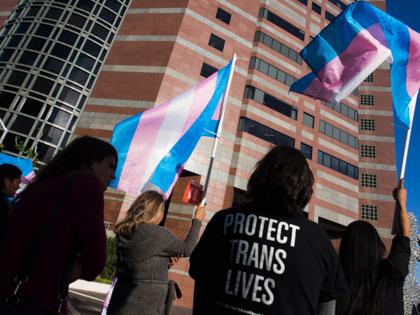Religion and politics create the sharpest divides over LGBTQ+ Americans, poll shows
Published in Religious News
There's a clear divide in how Americans view the influence of LGBTQ+ people in society.
Three out of four Democrats who said LGBTQ+ people have had an impact on the U.S. see that as positive, according to a nationwide poll conducted for The Times by NORC at the University of Chicago.
Nearly the same share of Republicans, 77%, said the influence of LGBTQ+ people has been somewhat or very negative.
A similar divide falls along religious lines, with about two-thirds of adults who identify as Protestants saying that the influence has been negative, while 69% of those who identify as having no religion or being atheist or agnostic see the influence as positive.
The responses reflect the most noticeable divide in the poll. Politics and religion, not education, race or income, are the biggest indicators of how Americans feel about LGBTQ+ rights and the place of queer people in society.
Put differently, how LGBTQ+ people are viewed depends heavily on where one falls in red and blue America and where one worships, if at all.
The data are consistent with the increasing political polarization across the nation, which has seen decades of the so-called culture wars — clashes on abortion, end-of-life healthcare, birth control and a host of LGBTQ+ issues including same-sex marriage.
"I was raised in the church, and it says in the Bible about people of the same sex not having a relationship," said Kendra Jackson, of Ventura, explaining that her views on LGBTQ+ people are rooted in her religion.
Jackson, who is in her early 50s, is aware of the reality of the modern LGBTQ+ community and the moral strictures of her faith. Her sister and a niece are lesbians and another niece is transgender. But at her Baptist congregation, her pastor rails against homosexuality, shows little tolerance for LGBTQ+ people and tells his congregants not to email or confront him afterward if they disagree with his sermons.
"A lot of members have stopped going because they have gay and lesbian children, and of course they feel differently," Jackson said.
...continued
©2024 Los Angeles Times. Visit at latimes.com. Distributed by Tribune Content Agency, LLC.







Comments